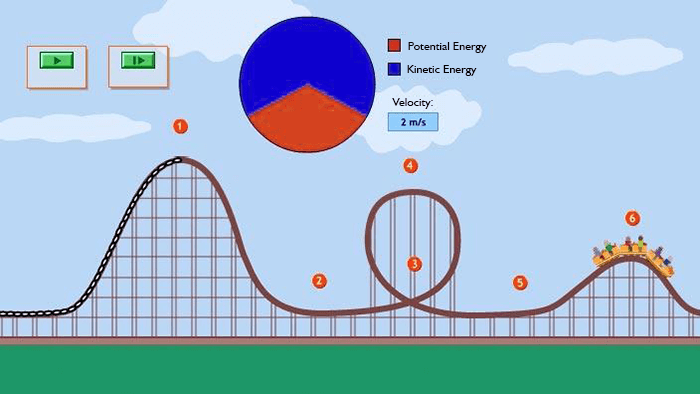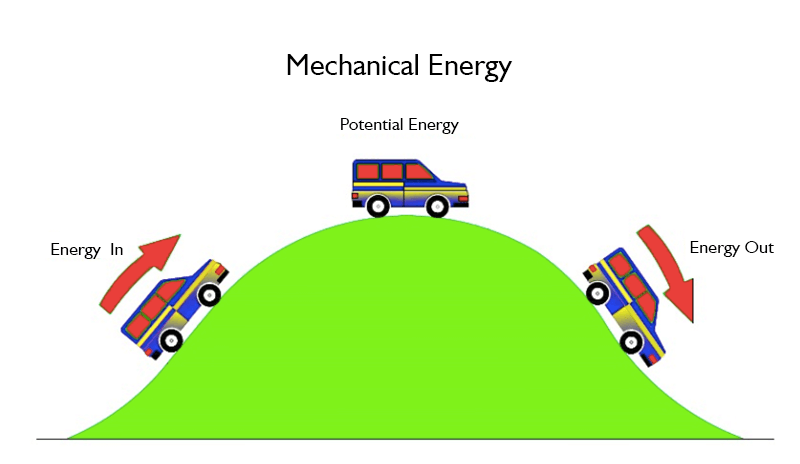Mechanical Energy DefinitionMechanical energy is the total potential and kinetic energy in a system as a result of an object's motion and position. Kinetic energy is the energy that an item has as a result of its motion. On the other hand, potential energy is an item's energy due to its position and configuration inside a gravitational, electric, and magnetic field. Kinetic energy is calculated using the KE = 1/2mv2, where m is the object's mass and v is its velocity. Potential energy is calculated using the equation PE = mgh, where m is the object's mass, g is its gravitational acceleration, and h is its height above a reference point. Example of Mechanical Energy-
The roller coaster has potential energy when it is at the topmost point of the track. Due to its height above the earth, potential energy exists. The potential energy of a roller coaster increases with an increase in height. As the roller coaster moves down the track, potential energy is converted into kinetic energy. As the rollercoaster lowers the track, it picks up speed and kinetic energy. The rollercoaster has its highest kinetic energy and lowest potential energy towards the bottom of the track. Its kinetic energy eventually turns into potential energy as it travels up the track again. It possesses the highest potential energy and the least kinetic energy when it reaches the top of the track. As long as no external force, like friction or air resistance, is exerted on the rollercoaster and earth during the ride, the total mechanical energy of the system stays constant. This is known as energy conservation. 
Conservation of EnergyThe conservation of mechanical energy is a fundamental concept in physics that asserts that the total mechanical energy of a system remains constant if no external forces influence it. Kinetic energy and potential energy are combined to form mechanical energy. According to the law of mechanical energy conservation, if an item is only affected by conservative forces, such as gravity or electrostatic forces, its total mechanical energy will remain constant. This indicates that the total of the object's kinetic and potential energy remains constant during its journey. Importance of Mechanical Energy in Daily Life
The ConclusionUltimately, mechanical energy is the energy that an item possesses due to its motion or location. This energy may go from one thing to another and can be either potential or kinetic. Because mechanical energy is key to how physical systems behave and interact, it is important to understand fields like physics, engineering, and mechanics.
Next TopicMetalloid Definition
|
 For Videos Join Our Youtube Channel: Join Now
For Videos Join Our Youtube Channel: Join Now
Feedback
- Send your Feedback to [email protected]
Help Others, Please Share










